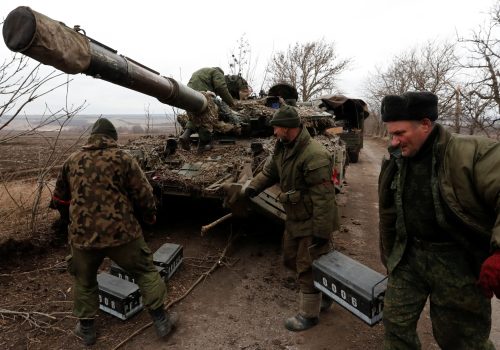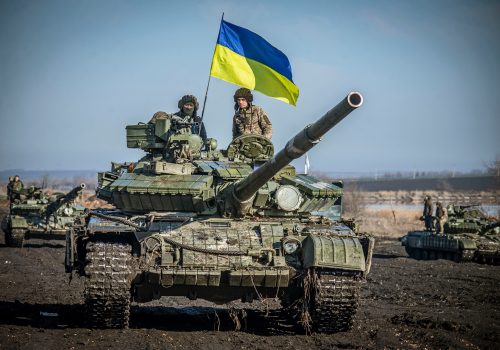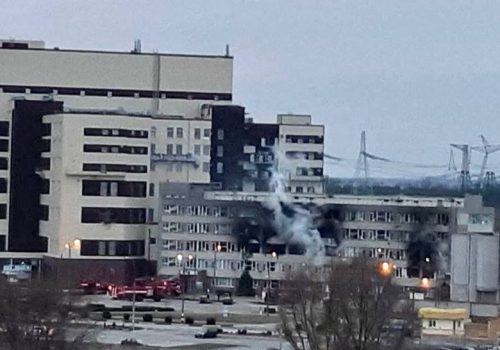Russia’s full-scale war on Ukraine has raged since February 24, with bombardments of Ukraine’s cities, attacks on civilians including hospitals and schools, and an attempt to forcibly change Ukraine’s government and bring the democratic country under Moscow’s domination. Despite massive firepower and manpower, Russian President Vladimir Putin’s key assumptions that the war would be a cakewalk appear to have proven incorrect, as Ukrainians stage a whole-of-society defense—as seen in the city of Berdiansk, where civilians harassed and demonstrated against Russian occupiers. The war has also galvanized a passionate and wide-ranging international response, with massive sanctions hurting the Russian economy, a historic pivot in Germany’s modern foreign policy towards increased defense, and unrelenting support for Ukraine’s fight for freedom.
Is Putin in over his head, or will a long siege of Ukraine eventually bring him what he wants? How is Europe responding to the unfolding humanitarian crisis as Ukrainian refugees flee the war, and what do Ukrainians need in this time of crisis? What are Ukraine’s prospects for continuing their defense, and will negotiations with the Kremlin eventually bring peace while maintaining Ukraine’s independence?
Ambassador John Herbst, senior director of the Atlantic Council’s Eurasia Center moderates a conversation with Gen. (Ret.) Philip Breedlove, former Supreme Allied Commander Europe, Ivanna Klympush-Tsintsadze, member of the Verkhovna Rada of Ukraine and chair of the parliamentary committee on the integration of Ukraine into the EU, David Kramer, managing director for global policy at the George W. Bush Institute, and Oksana Nechyporenko, director of Global Office, to discuss what comes next in Ukraine.
related content
related experts

The Eurasia Center’s mission is to promote policies that strengthen stability, democratic values, and prosperity in Eurasia, from Eastern Europe in the West to the Caucasus, Russia, and Central Asia in the East.




